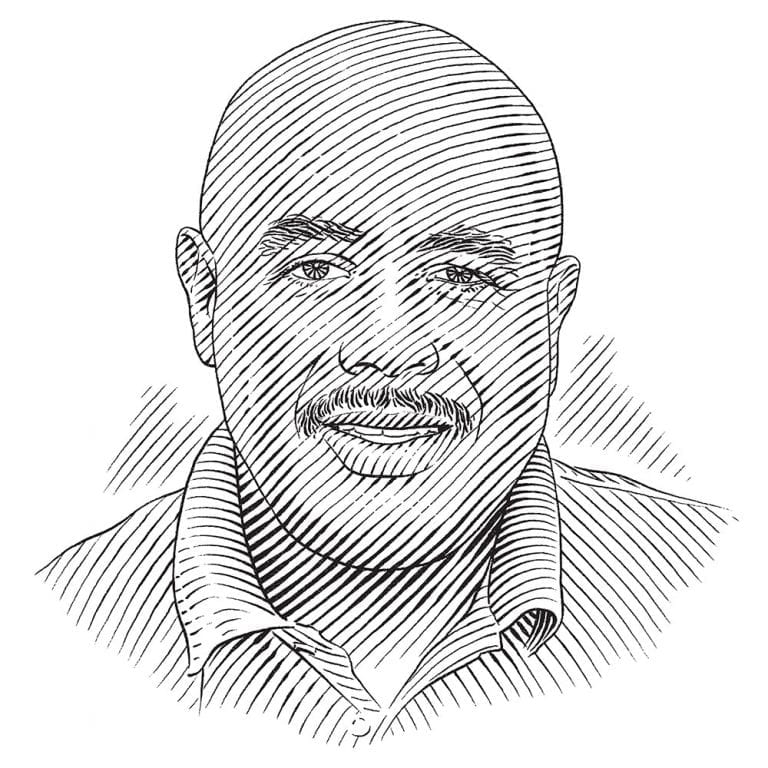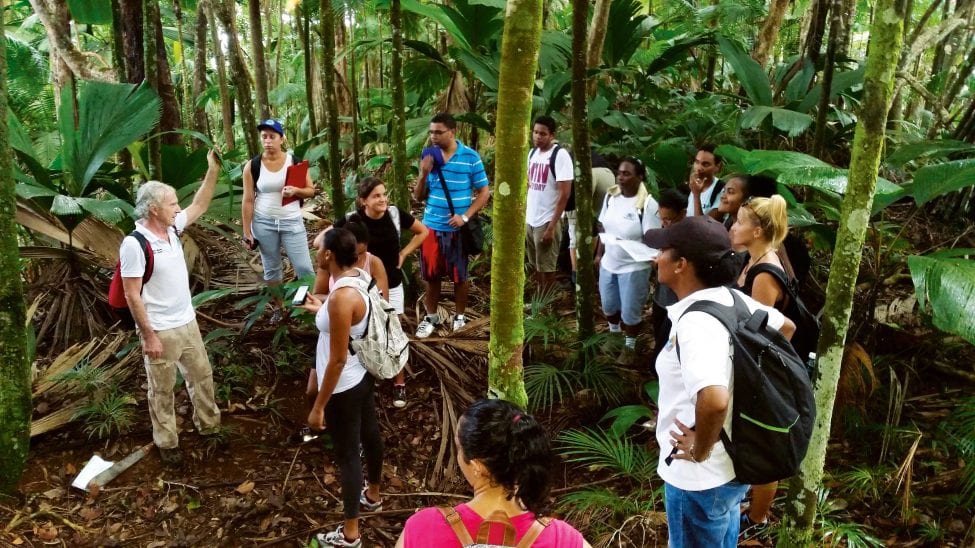A degree in Paradise
With a new BSc course in environmental science, the University of Seychelles is forging ahead in a bid to create leaders who will protect the precious ecosystems of the Seychelles – and beyond.
Visitors who come to the Seychelles often liken it to the Garden of Eden and you can see what they mean: a tropical climate all year round; crystalline turquoise waters with diverse marine life; forest-clad mountains where rare tropical plant species abound. Where else on earth can you find such an idyll?
One of the most interesting facts about the Seychelles is that, unlike other oceanic islands, they are composed of continental rock rather than oceanic basalt or reef limestone. The granite of the main island of Mahé is about 650 million years old, dating back to the Precambrian age. It is believed, though, that long-distance dispersal – by sea, wind and birds – was responsible for bringing plants and animals to the Seychelles, and in this respect our islands are similar to other oceanic outposts. This combination of similar and dissimilar ensures that the environment of the Seychelles is one of the most intriguing in the world to study.
And now there is an added attraction to the Seychelles – not only can you live in the Garden of Eden, but you can study it too! The University of Seychelles (Unisey) is offering a BSc degree in environmental science. The three-year course makes full use of the archipelago’s unique local environment and gives students the opportunity to explore this fantastic living laboratory.
The most pressing environmental issues faced by the Seychelles are addressed during the course, enabling students to analyse these issues and develop solutions for them, while at the same time gaining qualifications that are relevant to the Seychelles’ situation and in a broader context, both regional and international. The programme covers subjects such as climate change, natural resource economics, environmental law, sustainable development, global environmental change and marine and fisheries science. The lectures are complemented by practical work in the field and in laboratories, as well as work attachments that enable the students to apply theoretical perspectives to practical situations. In this way, they are exposed to the Seychelles’ well-preserved environment and ecological diversity.
Through collaboration with local NGOs and international partners and guest lecturers, the course offers students an opportunity to participate in forward-looking conservation action taking place both locally and internationally. It also enables them to study and participate in issues relating to Small Island Developing States, tropical ecology, climate resilience, education for sustainability and fisheries science, as well as coastal management.
SOSF Island School Seychelles
The SOSF Island School Seychelles (SOSF–ISS) focuses solely on marine environmental education and awareness and recognises the importance of making a real investment in environmental education. We believe in the words of Senegalese conservationist Baba Dioum: ‘In the end we will conserve only what we love, we will love only what we understand and we will understand only what we are taught.’ Since we began in 2014, we have reached thousands of students across all ages throughout the Seychelles.

